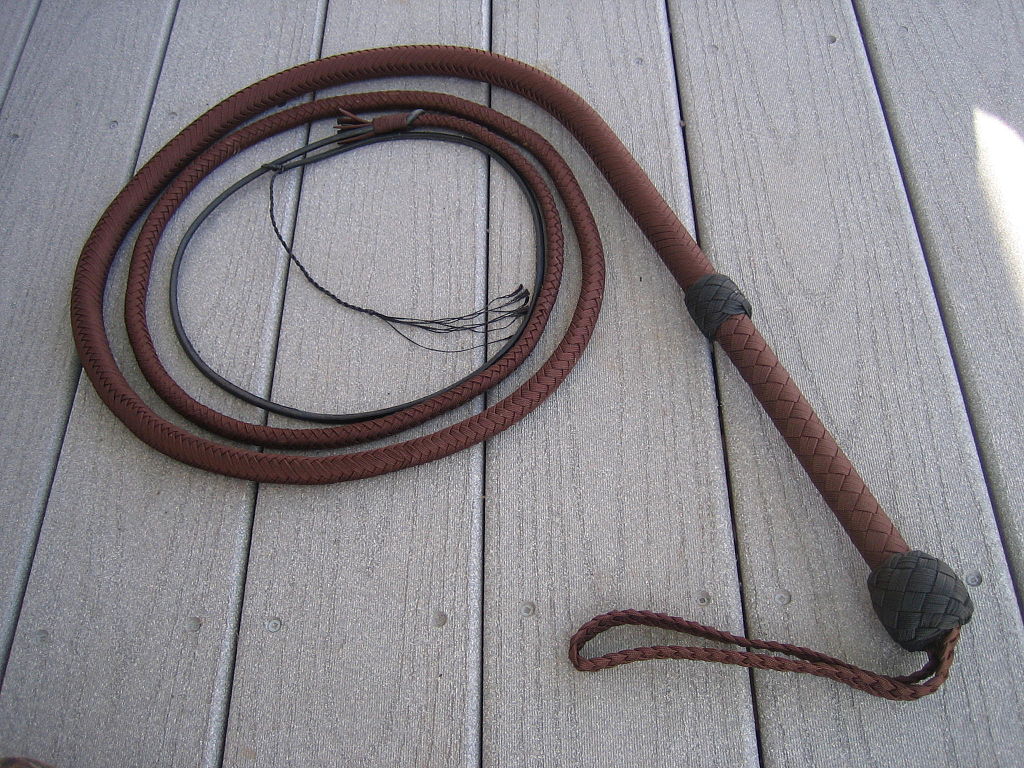I Vetted the State Department Whip Guy
Mea Culpa: It’s all my fault.
On Wednesday, press outlets reported that the chief of protocol of the State Department, Ambassador Sean Lawler, has been “suspended indefinitely” pending the conclusion of an investigation into his conduct. Lawler reportedly plans on resigning from his post.

Published by The Lawfare Institute
in Cooperation With

Mea Culpa: It’s all my fault.
On Wednesday, press outlets reported that the chief of protocol of the State Department, Ambassador Sean Lawler, has been “suspended indefinitely” pending the conclusion of an investigation into his conduct. Lawler reportedly plans on resigning from his post.
According to NBC, several State Department employees in Lawler’s office had resigned in protest as a result of his "management and behavior": "Among the behaviors that had caused concern, according to two U.S. officials, is that Lawler was known to carry a whip at work in what was perceived as an attempt to intimidate colleagues."
I read these stories with a lump in my throat.
I have no independent knowledge of the truth of any of the allegations against Lawler. But as the chief Democratic counsel for the Senate Foreign Relations Committee, I vetted him after he was nominated by President Trump for his position in September of 2017. I confess that I did not spot the alleged propensity for intimidating employees—and I never asked him whether he intended to wield a whip in the workplace.
The chief of protocol is an essential management position at the State Department, and it comes with the coveted rank of ambassador. The individual is responsible for coordinating high-level diplomatic meetings and ensuring diplomatic etiquette is respected—a surprisingly key ingredient for diplomatic success.
To be completely honest, when I reviewed Sean Lawler’s background documents, I was relieved. I had pored over dozens of nominee files during my tenure. A lot of them were really horrible.
Yet here was a Trump administration nominee who had spent 30 years in government service, including 20 years in the Navy. He even had experience in protocol issues—that is, experience relevant to the job for which he was nominated. In the climate we were working in, this was a rarity, and a relief. I looked for awful incidents or brushes with the law in his record (one nominee I vetted had reportedly been under a restraining order for placing a shot-up paper gun range target in the office of her husband’s doctor). There were none. We had seen so many ridiculously unqualified candidates with so many disqualifying issues that Lawler actually seemed like a small miracle.
What’s more, when I interviewed him prior to his confirmation hearing, he was easy to talk to, humble, and clearly committed to public service. I even asked him specific questions about how he would manage employees—and his answers inspired confidence.
Perhaps that’s why I forgot to ask him about whips.
Contrary to common perceptions of Democrats’ opposition to Trump’s nominees, Senate Democrats—at least the ones I was working with—were not out to block Trump’s executive branch nominees as a class. In fact, we were thrilled to be able to confirm individuals who were actually qualified. Trump’s career Foreign Service nominees were fine and generally raised no difficult issues. But his political nominees raised a lot of issues. So we were desperate for “easy” nominees, because we loathed being painted by Republicans as blocking nominees for no good reason. We wanted to reserve our umbrage and blocking power for those with real, serious problems.
And there were plenty of real issues for which we had to delay or block nominees—including serious concerns about the potential for harassment and abuse of State Department employees by people who didn’t carry whips. One nominee was said to have screamed at committee staff as he waited for his State Department handler to escort him to his next meeting. Another had been accused of multiple episodes of sexual harassment in his former workplace. There was the nominee who allegedly declared that he was nominated because his father is great friends with the Kushner family and had responded to an email asking if any family members wanted an ambassadorship. It was truly awful. In this context, Lawler’s confirmation was a welcome slam dunk.
The vetting process is a fluid one and staff periodically revises standard questions to take account of new issues that nominees present. To prevent recurrence of my error in this case, I recommend adding the following to the list of questions posed to all nominees to State Department positions:
- “Has anyone you have managed ever considered resigning in protest because of your treatment of any person in the workplace?”
- “Have you ever carried a whip, switch, bullwhip, brine-soaked cane, cattle prod, cat-o’-nine-tails or bludgeon in the workplace, or have you ever had the urge to do so?”
- “Do you have any intention of carrying such object in the workplace in the future?”
Vetting is hard. Vetting when the A-Team of the party in power has been blacklisted by the White House—or is unwilling to serve the president—is crazy hard. And when a problematic individual slips through the cracks without even a whiff of controversy, there needs to be a scalp offered in sacrifice. Here’s mine.
I would say it’ll never happen again—except that it surely will.




